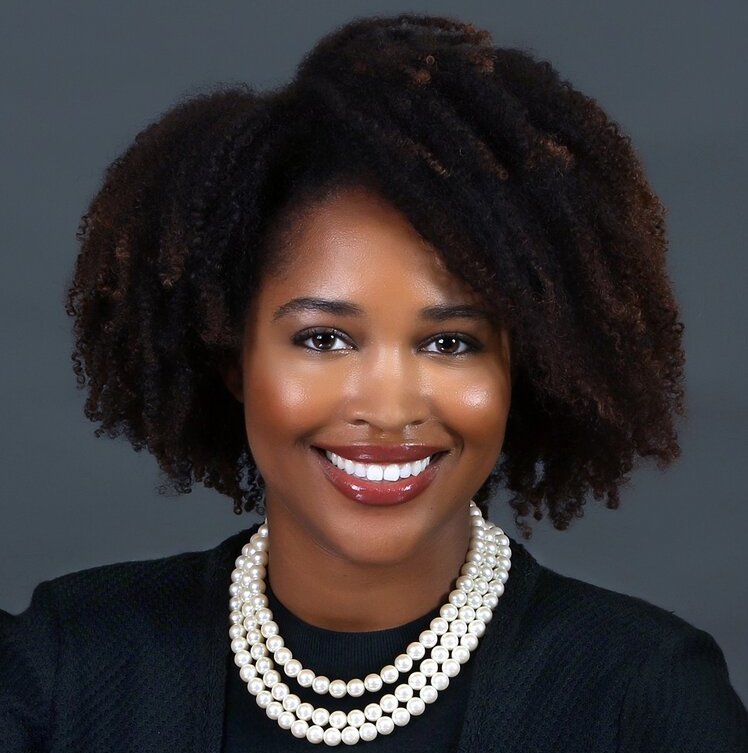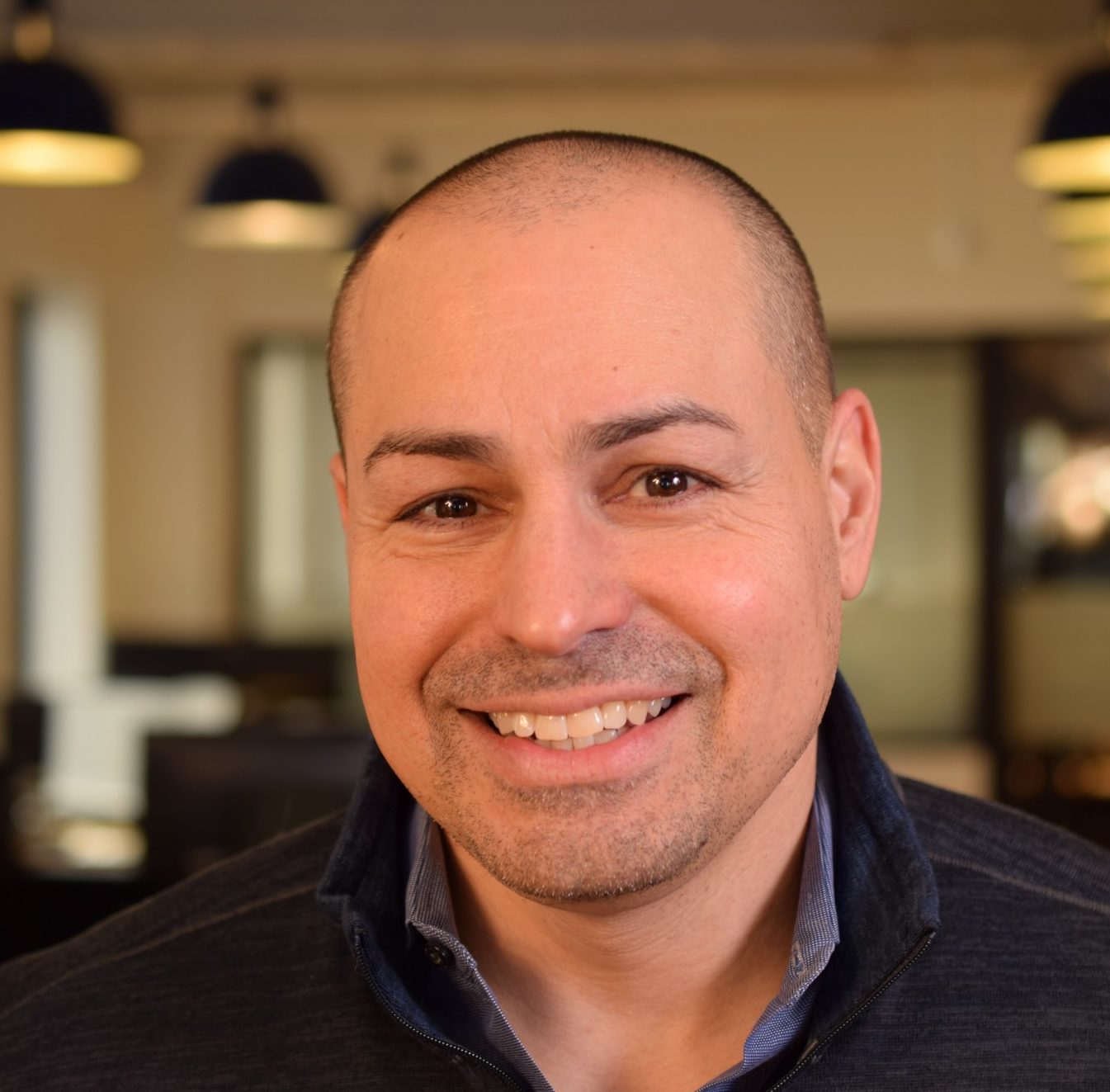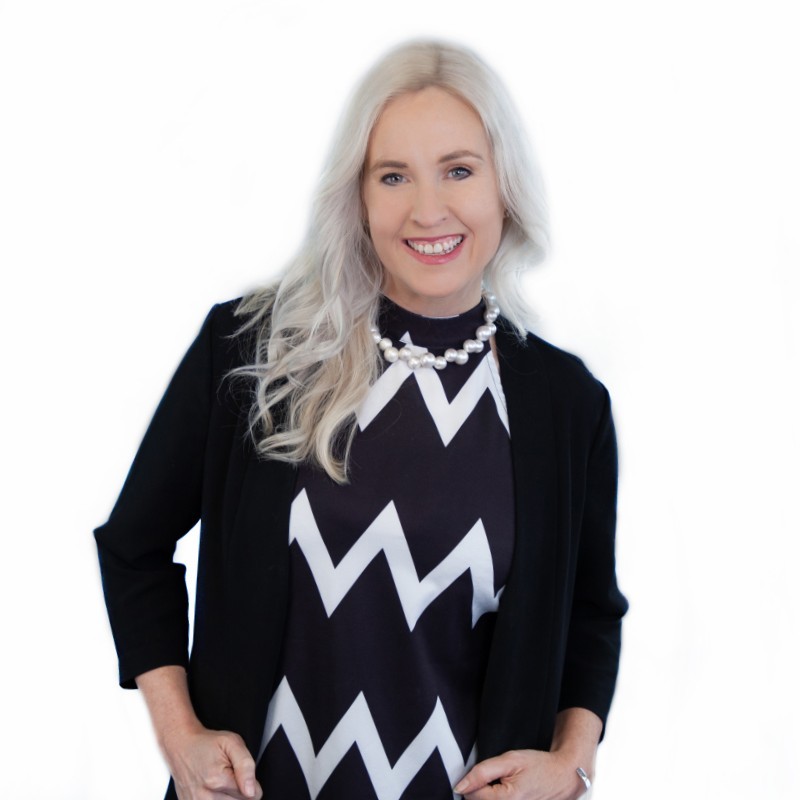What are we talking about?
Day-to-day leadership for your team, specifically why you need to identify people on your team who can be brand ambassadors in their professional life.
Why is building brand ambassadors among your team important to the future of work?
One thing that growing CEOs struggle with the most is that they constantly need to be out in front of people talking about their vision and brand. They live and think about it all the time. When you are constantly refining your elevator pitch or your 20 minute slide deck, you learn a lot about your own business, but also how to make a connection with other humans.
Being good at skills like public speaking, writing, and other media is going to be essential to succeeding in the future. If you are the only one on your team who can talk or write coherently about your brand, you are not helping yourself or those you work with.
As advertising and marketing gets more automated, having real life human brand ambassadors is worth a lot more than a digital ad.
What Deidre Wright taught us about how to look at brand building
All companies should have something like a Toastmasters chapter in their company. There should be many people in your company who feel very comfortable standing up and giving a speech or writing an article about a topic that is central to your company. Deidre says, “Your strength is your bench, and you want a lot of people you can pick from when an event comes up.”
It’s easiest to start with local events. Do some lunch and learns to start off with and then find other events that you can send your team to.
Teaching the skill of communicating a brand or idea goes well beyond just doing your own brand building. You are investing into people and showing that you care about their skills beyond their core work.
Deidre said “the bomb.com”. 😀
We talked about why it’s important to have diverse talent representing your brand. If you are a white man and you are the only one who gives speeches, you aren’t helping yourself out at all.
Sending out a variety of people to promote your brand also increases the level of authenticity. New people will see that it’s not just the person at the top, but everyone who really believes in this message. If everyone is a minion, but you are the only one who gets to show some personality, that’s a bad thing.
Similarly, you want the story you tell to have multiple angles. While you want to give clear talking points to people, allowing them to take it and make it their own can help you better refine your message as you grow.
Learn more about Deidre Wright
https://www.deidrewright.com
https://www.linkedin.com/in/deidrewright/
https://twitter.com/DeidreWrite
Today our guest is Deidre Wright. She’s a brand strategist and this episode is Work Minus Minions. Hi, Deidre. How are you?
Hi. Nice to be here, Neil.
I’m very excited to have you on today. It’s going to be a fun conversation. We’re talking about minions, but we’ll get into that in a little bit. Give us a little bit of background about who you are, how you got started in your work.
My name is Deidre, as you mentioned. I’m a brand strategist and founder of Strategic Stories, LLC. Previously in careers I worked really within branding and marketing and risk management. My idea is to help companies promote their brand and protect their brand and I’ve done this for multiple companies, some like Starbucks, Airbnb, Lyft, and more household names, they got to protect their brand. So, I’m here to share ways to do that.
And so, we want to take this in a little bit different direction instead of the big brand topics that are there. And we want to talk to people who are leading teams. So, this is a leadership topic we’re doing. And specifically, when you have some people on your team, you feel like there’s some that have some high ability, you feel like you want to invest more in them. We want to talk about what it means to actually build thought leaders in your team, in your company that’s there. So, tell us why that’s an important topic that we need to be discussing.
It’s an important topic because it’s a strategy for growth long-term. We know as of right now that you can’t have one sole person leading the charge of holding a brand. Everyone within your company should know the brand, be able to speak about what you offer, and be capable of sharing that for recruitment, prospecting, and more reasons. So, I think if anything else, a strong brand needs to have storytellers to be evangelists of the brand so no matter what, clients, employees, and everyone knows what it stands for.
So, if I’m sitting here and I have, I don’t know, maybe 10 people on my team that are directly reporting to me, maybe I’m thinking maybe one of them might be capable of doing this kind of stuff. Is there a natural ability some people have to carry a brand with it? Or is it a learned behavior?
I think everyone has a natural way they do it and it’s authentic to them. But I mean, obviously skills like public speaking or marketing are things that could be learned. But I honestly think the more diversity in storytelling is the best because it’s authentic to that person and so they’re able to connect with diverse clients, who might be more introverts or more extroverted, you never know. But I think it’s something that everyone can learn but should be authentic to themselves.
So, walk us through what it actually means to identify people, to build into them, what kind of training do they need. Where would you start?
I always start with any kind of performance evaluation process you already have. I don’t think that you should start from scratch and build upon that. You’re already assessing people for skills to do their jobs well. On top of that, say, “Hey, what are they doing to help be brand ambassadors in their current role?”, whether customer service, sales, marketing, operations, they should be either knowing, one, how to communicate what their function does, what the company does, and then be utilizing tools in your company, whether marketing or other departments have to help sell that internally. And I say that because people typically think about things being external. But both external and internal customers or employees need to know how to do this. One, to help cross sell things. So, that’s why it’s really important to know what your department does and others. And I would just really start by assessing their skill set, knowing their department, and working up storytelling, branding function within their current job.
So, if I invest in somebody and say, “I really want you to be our brand storyteller,” let’s say I’m on a marketing team, I got some people that are reporting to me. What do I start with in terms of do I need to go out and find a training for them or do I need to do my own thing in investing them? What should I do?
I think the first thing, like I said, most companies, if not all, do some kind of assessment, whether that’s personality or something along the lines, I would use that basic function point. Now if someone is more extroverted or more delighted about that stuff, then I would definitely invest in some public speaking. I think all people in the company should have a Toastmasters, either access to it at their current company or some kind of membership, because those have a good format for helping people grow their brands. But like I said, not everyone wants to be out in front of customers. So, maybe it’s more written communication that you use. But everyone should already have these skill sets assessing their weaknesses and strengths. And I would say align that with what is accessible to the company. That’s good for majority of people that maybe their development plans are different, like I said, Toastmasters versus more written versus whatever. And also, secondly, I would incorporate that to their job. So, let’s say their job is compliance. Sounds boring, right? What are they doing to share the reasons why to be compliant to different rules? Are they using emails? Are they using marketing funnels? These are things I’m talking about no matter what your job you could be doing to help protect the company and promote the company so they are compliant. But it’s not separate from their job. It’s just using marketing and branding storytelling to help the company be doing their job better and helping clients and customers understand the value of that function.
So, you mentioned public speaking. You mentioned writing. What are some of the different ways that people can be brand ambassadors that maybe we’re not thinking about? Usually, we think about a brand ambassador, I’m going to send somebody to a conference and they’re going to speak on our behalf. But that’s like a big thing. What are some of these other small ways?
Small things, lunch and learns are great. Like I said, I think it’s great to help function, I guess if at functions your department share what they’re doing. I used to enjoy that when I worked at a big company and having different departments tell me what they did. So, for example, I was working in the risk management insurance. So, there’s some people who do, let’s say, more financial service companies or more entertainment, having me learn about that help connect with my job, like, oh, do I touch upon these clients? Or if I come across one, who do I then I guess share the department to talk about, like, “Hey, you’re not my client but you need to go to Joe over here. He’ll be great for you.” Having that I guess knowledge point in house, like I said, lunch and learns are good. Another thing is for whatever they’re doing in their job, figure out how can you story tell more to sell your idea? There’s a lot of, let’s say, lackluster jobs. I know I had some. Risk management, I think it’s cool, but people typically cringe with that. How do I sell the story of, “Hey, you should get insurance to insure these risks. What are your goals? Let’s talk about goals and ideas. Okay. What would you do if that went away?” Get someone’s attention. “Well, let’s do this. Let’s think about these insurance policies to help protect that.” That sounds a lot more interesting than, “Hey, let’s ensure your company.” So, it’s not necessarily separate, but I would start with what’s your function? What are different resources within your department or within your company? I also do strongly think that people should be publicly speaking at events and conferences. It could be local. Maybe it’s a local networking group you go to or conference. But these should be the way you’re selling your company, through people, and companies now lose the idea that if I invest in my people, what if they leave? Well, what if they stay and suck? That’s more of a risk I wouldn’t want to tolerate having B-list players versus A-list.
So, I think this is good to think about. There are lots of things. We think about big conferences people can go to, but like you said, there’s a lot of small meetups that are going on and different things. As a leader, do you feel like it’s the responsibility to find those events? Or should you just tell people, “Hey, I want you to go find three events to speak at this quarter”?
Well, I mean, like I said, depends on the job. If you’re in sales and marketing, account management, you better be at these events. That should be a part of your job of prospecting, or just hanging out with clients. Maybe it’s more like you get clients and tag team. I know I’ve done it, where it’s like if I know that you’re a client of mine, for example, I was leading a marketing institute for diversity inclusion, I had an event in which I was able to speak and I got my clients opportunities, one that brought me closer to my client, because I’m delivering more value to them, having them on stage speaking someplace. And it’s a way to get both our brands across and then I get more loyalty. So, I would say think of it as a tactic for keeping and retaining your clients, promoting your brand, and also, I would say, retaining your employees. When people feel invested in, they feel more loyal, and they’ll give you more to your company. So, I don’t think it’s separate from what your job should be. Now for people more internal, like legal compliance or whatever, I think maybe what you do is you go to events and figure out best practices and you speak about them only from a side of recruiting talent, by sharing that your company’s A, B, C, like whatever it is, is the best and thebomb.com, it’s going to help you recruit more talent, because you’re showcasing how amazing your brand is. So, for example, like I said, I was working with a lot of HR people and they’re, like, “How do we find diverse talent? Or how do you find this?” I’m like, Well, what events will they be at, where can you talk about how great your company is, as a thought leader, that’s going to naturally attract people to go to you and say, “Hey, after this talk, if you want to talk to me, reach me at this corner. I’m willing to talk to anybody who’s interested in my company.” So, it’s not necessarily separate than what you’re doing at your job.
Let’s get into the diversity aspect to it more, because a lot of times, if a company does feel like it’s important for us to have a diverse talent pool. They go out, they spend a lot of time recruiting, they bring it in, and maybe they even do some inclusivity training, they do that. But then they don’t really make that person into a brand ambassador and build into them and recognize that they have access to other networks and other places that aren’t there. So, to speak to us more about the power of diversity and brand building.
By this point, everyone’s heard the statistics that the world’s more diverse and maybe a majority minority. So, obviously, people have ideas, like, it’s a good thing to do. I think it’s a business thing to do. So, if you’re not investing in ways to connect with diverse employees, customers, whatever, you’re just not going to have a successful business over time. So, the importance is you want to have authentic leadership styles. That’s why I say it’s really about what is true to that person. So, maybe someone’s from a different nationality or wherever, are there some global conferences or events they can speak at, because they’ll have that cultural aspect to connect with that diverse customer base. So, for example, like I said, maybe you have an employee who came, for example, my sister talked about a leader at her company came from Spain or whatever. And so, how do you connect with customers in that marketplace and talking about, “Hey, here’s my story.” Or even the fact that he talks about that connects to other immigrant employees at the company or clients. So, I think storytelling about who you are, but in the context of your company, it’s helpful because it helps recruit people. And honestly, frankly, you have to have representation to believe it. So, I see, for me, I’m a young black female. When I see female black people, whatever, leaders in high C level position, I get inspired. I’m like, “I can be you because I see it.” So, I think we need to have more diverse people representing themselves at events, because when I was booking speakers for events, I wouldn’t really see most of that. And my thing is it’s not that there’s not diverse people who are having the positions, they’re just not telling their stories. And what happens is their company is not showcasing this brilliant talent that can help pull in more customers. So, I think it’s very important for connecting customers, and for recruiting top talent.
Let’s talk about control the story because I think this is a hangup that would be for me and maybe for others, too, is that even when I’m talking about Work Minus. I’ve done it so many times. I know how to talk about it to other people. If I just turned somebody loose and just say, “Hey, go out to this event and talk about it,” then I have this thing inside me says, “But make sure to say these things and say it in this way,” because I developed my own way to do that. So, in what part is that good to have a consistent story that’s going out there? And in what part is that bad to feel like you need to control every word that comes out?
I think there should be some kind of template or talking points. You should not go to an event without an agenda and partnering with communications and marketing for that. I honestly think that anyone in the company should have training by marketing annually to understand what are the marketing materials and collateral out there that you can use currently, and also, when you go to an event, how do I tell a story because these people are in house or their consultants, they can help you with that. It doesn’t have to be hard. And if I’m on this stage or platform, what are the top three things I need to say to showcase why our company is the best? So, I do think that there should be some template. Now obviously, everyone’s style is going to be different the way they deliver the message, but at least prep them so they know how to be comfortable saying and selling these points because people typically are more comfortable talking about stories, but not the sales aspect. So, they have to be comfortable with both.
Let’s take a little turn. In this podcast, we’re always talking about the future of work. We’re trying to say we want to get people ready for cultural trends, societal trends, work trends that are coming up that will help people to navigate that, and as it comes in, we’ll be ready for that if we can drop things in the past. So, the idea in the past we’re talking about is that we said Work Minus Minions, just people who are just back there just doing whatever you say, “Yes, sir,” “No, sir,” type thing and really trying to build ambassadors that go out to these things. What do you see as the reason why looking at the future coming up automation, artificial intelligence, all these things that are coming in, why is it important that we spend time now building into people with brand building skills?
Well, the reason why to build brand and storytelling skills are really important. Why not to be a minion is really for two aspects. Your strength is your bench. As much top talent that’s really going to carry your company into the future because customers now want more authentic relationships with their service providers or their products. They want to know the story behind it. For example, there’s Coca-Cola and there’s Pepsi. Those are basically to me virtually the same thing. But people have memories or connections or experiences. And that’s really what captures their attention or gets that loyalty over it. Because what happens is, let’s say my mom drinks Coke, I have memories drinking Coke with my mom. That’s what it is. I have memories of this. And so, I say that because if you’re a service provider, especially, you have to have the authentic story and you want people sharing your brand for either talent recruitment, because what happens is if you have minions, you’re going to lose out on engagement, you’re going to lose out innovation because what happens is, I know from my experience of being a service provider, and also being a marketing side, when I was service provider, I would often be like, my client doesn’t like this marketing template. Why do we have this, for example, a 26-page PowerPoint. I would do that and every time a client says, “Cool. Can you make this a one pager?” So, why am I wasting my time? And I was trying to say how can we switch this every time I’m doing all this work to do that? So, I say that because what if you had it was a feedback loop between your service providers or who’s on the floor, and those in marketing and those in leadership? What’s happening, you’re getting closer to what the customer actually wants. And that’s what you want. You want people in the front line telling you, “Hey, this will render better with clients. Let’s try it this way and see what happens.” So, I think for innovation and being adaptable, that’s one thing and also for employee engagement. Because we know right now, the gig economy, people now more than ever having more than one hustle. And you want to make sure that you’re going to be their main hustle and the main loyalty. So, I think if nothing else, customers want authenticity. And also employees want to be heard and not a minion. So, that’s why it’s so important for companies to recognize that but give them the tools for success with that training.
When I think about it, I think about the fact that so many of our front facing interactions with customers are becoming automated. We talk about chat bots. You talk about you just interacting with the website. You don’t call in anymore. The front face is so mechanized in so many ways. And even if it’s a good mechanization in some way connecting with us in one way, we know that it’s not real, we know that it’s not a human that were there. So, even when it comes to things like recruiting and building your brand, it’s one thing if you see digital ads everywhere, promoting your brand, and you see it so many places that are following you around, things that are there. But when you have actual people in your life, that you go to this event and you hear somebody speak about something or you go to somewhere else and you see somebody, a real person, blogging about something, all these touch points mean so much more because they’re coming from humans, and those human touches tend to stand out more. So, that’s one reason why I feel like this is an important topic, too.
I think that’s the thing. I mean, obviously employers need to invest in technology. But end of the day, depending on whether the product is a service, I know when I’m frustrated and there’s a customer service issue, I want a person to vent to or help me out. Because only so much chat bots, I’m just frustrated. And it obviously depends on the service. But I know a lot of companies, even the service provider side are going to the chat bots or whatever. And the thing about it is, if you don’t have a person that they can think about or go to or have that connection, there’s less compassion. So, what are people doing? They’re going to Twitter and complaining, they’re going to Instagram and complaining. They don’t have that human connection to think of it as, “Hey, on the other side I have a person helping me or a company that cares about me.” It’s technology. And I just think that’s what people want more. It sounds counterintuitive, why have people when we want to invest in technology, but people want that option to connect with a human being and share their joys as well as their griefs.
I really like this conversation and where it’s going. If we’re going to learn more about how to build brands, how to get out there with other people, what do you recommend for us?
I think the first thing is figure out what the business goals are. I always start with the goals. What is your goal? Is it to be the number one leader in this area? Is it to really solve a problem? Figure out what the goal is first and build a brand, making a name for yourself as that hero, or actually not, as that guide for the person so they can be a hero because it’s a great story, like Donald Miller has the brand story. And the thing is you’ve got to make your client the hero. So, how are you positioning yourself to be their guide for that? So, make a name for yourself and really have the receipts to back it up. I think that’s the brand. Your brand should be reputation, not your features, but what you actually solve for your customer. I think that’s where you start out and then figure out what are the channels to reach that message. Is it through video? Is it through social media? Is it through live demonstrations? Only you will know by piloting that. But start with what your clear goal is and be very, I would say, concrete on just driving that point. For me, I want to solve people’s problems but getting their name known and their business solid. So, customers know to go to them for that issue. That is a clear point of what I do to promote and protect people. I don’t want to solve the world making everyone a superhero. But I want to have those people who have problems to solve, to help customers concretely, that’s what I do. So, my thing is narrow it down, have your goals, and figure out the channels. And then what you do is you train your employees to use those resources. Because I know for me, when I was a service provider working in risk management community, marketing never told me how to use all their white papers and other things. And it’s wasted resources if no one’s using it.
And this is really personal for me. Even as I’m thinking just today I had two conversations, one with the person who said that one of his goals was to speak at a conference at some point in the next year, and it is a great person, clearly somebody who we want to emphasize and to promote and to keep in the company. And we also had a conversation earlier about the brand of the company and where we’re going to go with different things. And to recognize that those two things are related. And marketing should be very interconnected and integrated with everything else. And everyone should know the messaging and the stories we’re building. So, this is a really powerful topic.
That’s good. And I tell people, entrepreneurship is not for everybody. There’s a lot of great jobs within companies. But the reason why people go out is because either they really, really have an idea they want to push or they’re just unhappy at work. Why not let them be a rock star at your company? It delivers value to you and to them. So, I think for that, let’s put this in your performance plan and have you at events. Let’s start building up the confidence first. Let’s do a lunch and learn network or a virtual webinar, and then build upon that. Once you have that crafted, down the next level is maybe something else, maybe a customer presentation. Next step is a public speaking opportunity. But you build up that confidence bit by bit and that’s delivering value to your company. So, it’s a win-win for both.
Awesome. Well, Deidre, where can people go to learn more about you and what you do?
People can learn more about me at deidrewright.com or find me on social media @DeidreWrite. Thank you, Neil.
Clever. I like it. Good. Well, thanks a lot for being on the show. We appreciate you coming on, sharing your insights, and helping us get ready for a better future.
Thank you. Have a good one.
Deidre Wright is the Founder of Strategic Stories providing business & personal brand consulting. Previously she led Business Insurance’s Diversity & Inclusion Institute as Director of Engagement & Marketing; where she developed strategies, partnerships and public relation opportunities for the insurance industry to collaboratively promote diversity & inclusion. Prior to that she worked as a Commercial Insurance Broker managing complex accounts for Marsh San Francisco’s Global Risk Management department and Aon Atlanta’s National Casualty division. Her start in corporate began with working in public health on research featured in the New York Times; investigating the causes of early childhood puberty and breast cancer. Deidre has served as Co-Chair of San Francisco’s Dive In Fest, NAAIA’s Emerging Leaders Committee; and as a member of RIMS Rising Risk Professionals Board.












